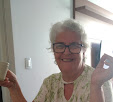I had to escape, the city was stinking and cruel
Maybe I should have called you first, but I was dying to get toyou
I was dreaming while I drove the long straight road ahead
Uh-huh, yeah
Could taste your sweet kisses, your arms open wide
This fever for you was just burning me up inside
I drove all night to
get to you
Is that all right?
I drove all night, crept in your room
Woke you from your sleep
To make love to you
Is that all right?
I drove all night
What in this world
keeps us from falling apart?
No matter where I go I hear the beating of our one heart
I think about you when the night is cold and dark
Uh-huh, yeah
No one can move me the way that you do
Nothing erases this feeling between me and you
To taste your sweet
kisses, your arms open wide
This fever for you is just burning me up inside
I drove all night to
get to you
Is that all right?
I drove all night, crept in your room
Is that all right?
I drove all night.
ROY ORBISON - I DROVE ALL NIGHT
I DROVE ALL NIGHT
ROY ORBISON
SONGWRITERS: BILLY STEINBERG & TOM KELLY
COUNTRY: U. S. A.
ALBUM: NINTENDO: WHITE KNUCKLE SCORIN’
LABEL: RCA VICTOR
GENRE: ROCK
YEAR: 1987
Roy Kelton Orbison (April 23, 1936 – December
6, 1988) was an American singer, songwriter, and musician known for his
impassioned singing style, complex song structures, and dark, emotional
ballads. His music was described by critics as operatic, earning him the
nicknames "the Caruso of
Rock" and "the Big O". Many of Orbison's songs conveyed vulnerability at
a time when most male rock-and-roll performers chose to project defiant
masculinity. He was known for his shyness and stage fright,
which he countered by wearing dark sunglasses.
Orbison began singing in a rockabilly and country-and-western band at high school. He was signed by Sam Phillips of Sun Records in 1956, but enjoyed his greatest success with Monument Records.
From 1960 to 1966,
22 of Orbison's singles reached the Billboard Top 40. He wrote or co-wrote
almost all of his own Top 10 hits, including "Only
the Lonely" (1960), "Running Scared" (1961),
"Crying" (1961), "In Dreams" (1963), and "Oh,
Pretty Woman" (1964). Beginning in the mid-1960s, Orbison suffered a
number of personal tragedies and his career faltered.
Orbison
experienced a resurgence in popularity in the 1980s following the success of
several cover versions of his songs. In 1988, he co-founded the
Traveling
Wilburys (a rock supergroup) with George Harrison,
Bob Dylan,
Tom Petty,
and Jeff Lynne.
Orbison died of a
heart attack in December 1988 at age 52. One month later, his song "You Got It"
(1989) was released as a solo single, becoming his first hit to reach the U.S.
Top 10 in nearly 25 years.
Orbison's honors include inductions into the Rock and Roll Hall of Fame and Nashville Songwriters Hall of Fame in 1987, the Songwriters Hall of Fame in 1989, and
the Musicians Hall of Fame and Museum in 2014. He received a Grammy Lifetime Achievement Award and five other Grammy Awards. Rolling Stone placed him at number 37
on its list of the "Greatest Artists of All Time" and number 13 on
its list of the "100 Greatest Singers of All Time". In 2002, Billboard
magazine listed him at number 74 on its list of the Top 600 recording artists.
"I Drove All Night" is a song written
and composed by American songwriters Billy
Steinberg and Tom
Kelly and recorded by American singer Cyndi Lauper.
The song was originally intended for Roy
Orbison, who recorded it in 1987, the year before
his death, but his version was not released until 1992, after Lauper's version
became a top 10 hit on both sides of the Atlantic in 1989. The song has also been
covered by Canadian singer Celine
Dion, whose version topped the Canadian
Singles Chart and reached number 7 on the U.S. Adult Contemporary chart in 2003.







0 comentários:
Postar um comentário